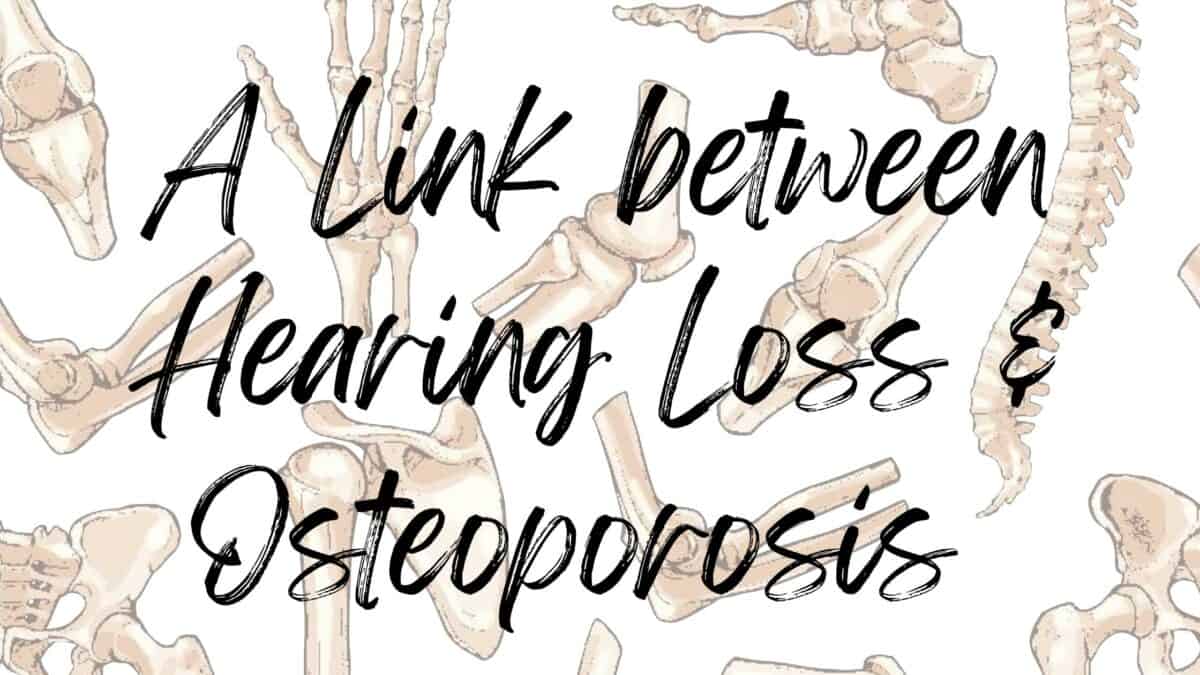A new study shows that people with osteoporosis can be nearly twice as likely to develop hearing loss. If you or a loved one lives with osteoporosis or low bone density, prioritize your hearing health to reduce your risk of experiencing impairment.
What is the link between hearing loss and osteoporosis?
Research has shown that there is a correlation between osteoporosis and hearing loss. Studies examining the link between these conditions reveal that osteoporosis can significantly increase the risk of developing hearing loss. This includes the following two studies:
- 2021 study published in the Journal of the American Geriatrics Society: to assess the risk of hearing loss over time for people with osteoporosis, researchers at Brigham and Women’s Hospital analyzed data from a health study. This included 144,000 women who were followed up with for 34 years. Researchers found that the risk of hearing loss was 40% higher in participants with osteoporosis or low bone density.
- 2015 study published in The Journal of Clinical Endocrinology & Metabolism. Assessing the link between hearing loss and osteoporosis, researchers at the Chi Mei Medical Center in Taiwan evaluated data from a national health database on people with and without osteoporosis. This data set included 10,660 people with diagnosed osteoporosis and 31,980 people without it. Key findings included that people with osteoporosis were 76% more likely to develop sudden sensorineural hearing loss.
These findings support existing research that establishes a correlation between osteoporosis and hearing. But how exactly does osteoporosis impact hearing health?
How does osteoporosis impact hearing health?
Osteoporosis is a medical condition that causes bones to become weak and more likely to break. The body is constantly replenishing bone tissue and over time, this process can occur more slowly which is what produces osteoporosis. This makes bones more brittle and fragile which increases the risk of fracture. There are bones in the ears that are critical to how we process sound and osteoporosis can make these bones vulnerable. To understand how hearing can be impaired by osteoporosis, it is helpful to know about the anatomy of how we hear. This consists of:
- Outer ear: the outer portion of the ear absorbs sound from the environment which travels down the ear canal and lands on the eardrum.
- Middle ear: these vibrations activate the ossicles – three connected bones that are among the smallest in the body. These bones help propel soundwaves further into the inner ear.
- Inner ear: hair cells in the cochlea help convert incoming soundwaves into electrical signals which get carried to the brain. The brain is then able to assign meaning to these signals which is how we understand what we hear.
Researchers suggest that osteoporosis can contribute to the bone remodeling and weakening of the ossicles. These bones play an important role in how sound is absorbed so less capacity to do this, can disrupt this process.
Tips to Protect Hearing Health
Implementing ways to reduce your risk of developing hearing loss is especially important if you have osteoporosis or low bone density. A few tips to protect your hearing health include:
- Manage osteoporosis effectively. Research shows that eating a healthy diet and exercising can help slow or prevent the loss of bone mass. This can prevent fractures and bone breakages. Be sure to work with your primary care doctor to develop an effective treatment plan to manage your osteoporosis.
- Test hearing regularly. Experts recommend having your hearing tested at least yearly. Hearing tests involve a painless process that measures hearing capacity in both ears. This identifies any impairment and the degree of hearing loss present. Testing your hearing consistently also establishes a baseline of your hearing health, making it easier to track any changes and intervene early.
- Avoid loud noise exposure. It is also useful to avoid other causes of hearing loss. One of the most common causes is exposure to loud noise. You can reduce your exposure by wearing hearing protection like headphones or earbuds, maintaining lower volume settings on electronic devices, taking listening breaks, and avoiding environments with excessive noise.
Prioritizing your hearing health starts with the simple step of scheduling an appointment with a hearing healthcare specialist. Call us today to get started.

